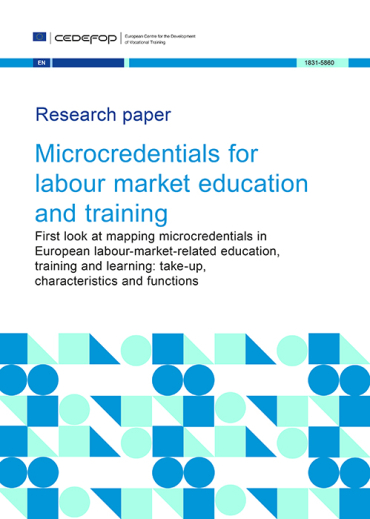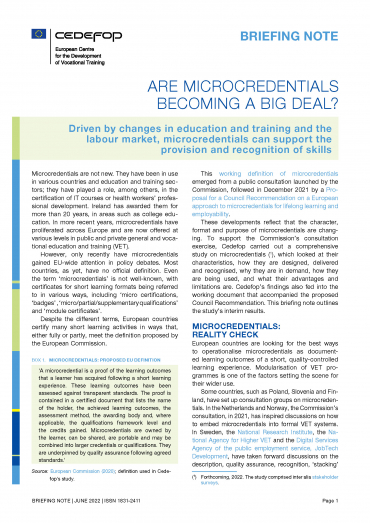Microcredentials should not be considered a threat but rather an opportunity for education systems and the world of work, given their ability to respond rapidly to labour market skill needs.
This was the key message of a Cedefop conference that took place on 22 and 23 June and marked the conclusion of the Agency's long-term research project, which coincided with the European Year of Skills.
Over 260 academics, experts, policy-makers and stakeholders from education, training and industry, from 60 countries in Europe and beyond, had the opportunity to be briefed on the methodology and final findings of Cedefop's study, exchange ideas and experience at European and international levels, explore how microcredentials could bridge the worlds of education and work, reflect on future research on microcredentials and deliberate on the next steps of Cedefop’s research work in the field.
Opening the event, Cedefop Executive Director Jürgen Siebel noted that short learning courses was a response to the need for more flexible, learner-centred education and training, adding: 'The portability and transferability of microcredentials, their currency and exchange value, largely depend on their visibility and perceived value by others, notably by education institutions and employers.'
An important tool to make upskilling and reskilling the norm
Marking the recognition of the significance of microcredentials, Ana Carrero Yubero of the European Commision's Directorate General for Employment, Social Affairs and Inclusion (DG EMPL), said that the Commission saw the potential of short and targeted courses as an important tool to make upskilling and reskilling the norm.
Cedefop Head of Department for VET and Qualifications Loukas Zahilas pointed out that microcredentials were increasingly considered as a new and more flexible way of recognising knowledge, skills and competences, and a key policy challenge was to ensure that employers trust their value.
Presenting the findings and outcomes from the three-year research project, Cedefop experts Anastasia Pouliou and Iraklis Pliakis pointed to the uncertainty around the naming and function of microcredentials, with differing opinions on how they are being identified. In addition, they said, microcredentials are emerging mostly in areas such as engineering, manufacturing and construction, as well as in sectors such as hospitality, human health and social work.
Listen: Cedefop's Loukas Zahilas and Anastasia Pouliou discuss microcredentials
The main question that triggered discussions during the two-day event concerned the relationship between the emerging phenomenon and traditional qualifications and credentials.
Debates concluded that microcredentials cannot replace formal qualifications; rather, they complement the current conventional learning opportunities.
There also needs to be a wider awareness of microcredentials, as the specific term has not been commonly used in the national context, even when there is a longstanding practice in many countries to offer shorter learning experiences.
Conference presentations: click here




